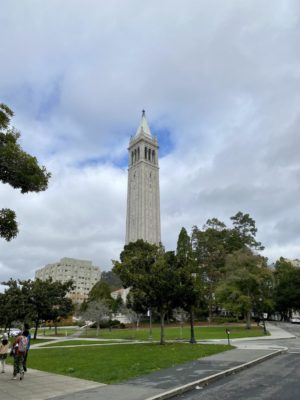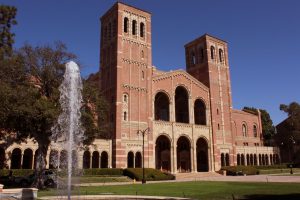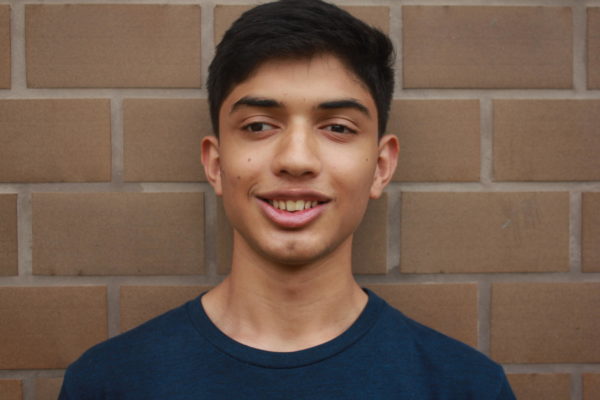Questions rise about admissions cuts after the UC Berkeley lawsuit
Uncertainty proliferates among freshman applicants as court proceedings regarding UC Berkeley enrollment cap remain in deliberation
April 14, 2022
A recent lawsuit by local residents of Berkeley forced the California university to reduce their incoming class size for the upcoming 2022-23 school year.
The lawsuit, filed by organization Save Berkeley’s Neighborhoods, based its complaints on the principle that the growing campus population violated the 1970 California Environmental Quality Act and added to the problems that students cause, like housing, homelessness and noise.
The premise of CEQA is to prevent proposed activities that would have “significant, avoidable environmental damage.” Tying in the effects of housing, homelessness and noise disruption gave the activist group a strong enough case for a county-level court to enforce this mandate.
Since 2005, UC Berkeley has increased its student body by about 13,000 students, and yet has only added 1,600 beds to its campus. The overflow of students into nearby neighborhoods has increased more dramatically in recent years with an increase in enrollment of 2,700 students in the 2021 admission cycle.
Roughly 92% of the university’s 45,057 students live off-campus. The increasing demand for off-campus residency has increased housing and rent prices throughout the city, displacing lower-income families and students.
Olufemi Ogundele, the Dean of Undergraduate Admissions at UC Berkeley, sent an email to every prospective Berkeley student soon after the court made its decision, detailing the case’s implications on the school.
“We would need to reduce our targeted fall 2022 new undergraduate student enrollment by at least 3,050 students,” said Ogundele.
This is a huge blow to prospective students who are battling for a spot with cutthroat competition and an acceptance rate of around 18%. However, within the letter, Ogundele affirmed that the university is taking every measure to reduce the impact on prospective students, starting with an appeal to the Supreme Court of California.
“We want to assure you that we are pursuing every possible option for avoiding what would be a dire situation for prospective students and our campus,” Ogundele wrote.
On March 3, the California Supreme Court rejected UC Berkeley’s appeal, requiring them to continue their admission cut of some 5,100 students, a higher number than the actual cut in enrollment to account for yield rates. While Save Berkeley’s Neighborhoods organization celebrates this decision, the university is still looking for a way to bypass these restrictions.
“This is devastating news for the thousands of students who have worked so hard for and have earned a seat in our fall 2022 class. Our fight on behalf of every one of these students continues,” Ogundele said in a statement following the decision.
However, Phil Bokovoy, the president of Save Berkeley’s Neighborhoods, states he was pleased with the Supreme Court of California’s decision but assures high school students that they are just as disappointed as they are. He believes the UC system has attempted to use them as “pawns in attempts to avoid mitigating the impacts from the massive enrollment increases over the past few years.”
Bokovoy claims the main reason for his organization’s legal battle is the massive housing shortage as a result of the university’s expanded policy. Bokovoy claims this shortage makes it difficult for low-income students to attend while displacing low-income residents of Berkeley.
“We don’t trust the university when they say they’re going to build housing,” Bokovoy said.
Dougherty Valley High School senior Anirudh Basu is one of many prospective students who have been affected by the decision.
“I thought that it wasn’t great, but I understand where this admissions cut could be coming from,” he said.
Unfortunately for Save Berkeley’s Neighborhoods, on March 14, actions by Governor Gavin Newsom overturned the California Supreme Court decision and allowed UC Berkeley to continue their admission cycle without cutting down on their class size.
Only 11 days after the California Supreme Court ruling, the state legislature took a vote to change the law. The bill passed unanimously and was promptly signed by Gov. Newsom. Afterwards, it was implemented into law, a process that normally takes around eight months.
This new law changes the premise of CEQA and gives universities like UC Berkeley more time to comply with laws before having to reduce their student body when ordered by a judge.
On the topic of the ruling getting overruled, Basu stated, “I’m happy as the new legislation definitely increases my chances. I’m also glad for a lot of the other students who were bummed out that they wouldn’t get as great of a shot at Berkeley.”
The change in legislation is narrowly tailored to the UC Berkeley situation and will require further legislation in the future to be impactful, but it served its purpose.
“I’m grateful to the Legislature for moving quickly on this critical issue – it sends a clear signal that California won’t let lawsuits get in the way of the education and dreams of thousands of students, our future leaders and innovators,” Newsom said.






